The first international ERF drone training for rangers hit the mark, as can be seen from the feedback of the participants. Thanks to the guidance by the drone-experienced rangers from Junta de Andalucía, the on-site support of participant and ranger Borja Díaz and a donation of 1,000 euros from the Thin Green Line Foundation UK, we were able to offer 10 participants from five countries a four-day training on the handling of drones, their applications for rangers, flight planning and the evaluation of the collected data in Seville, Spain.
The responses to the training range from “My drone has more functionality and uses because of the course”, “I really enjoyed flying the drones, but also learning how to plan the flights and work on the results” to “The training got me excited about the variety of uses of drones in Ranger work”. But there was also a desire for more: flight practice, handling software, more lessons also in the afternoon.
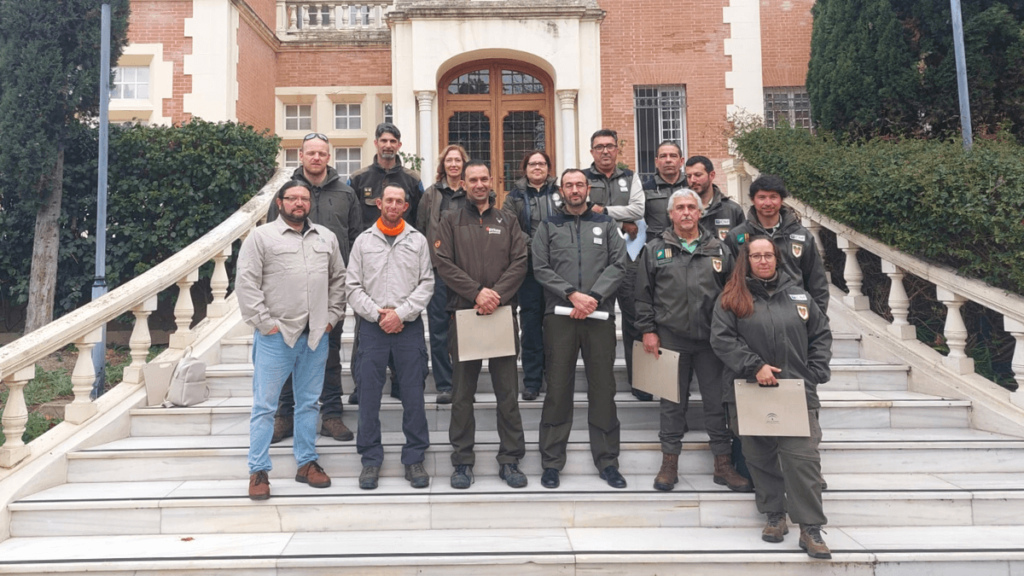
To give a closer insight into the training, we interviewed participant and Portuguese ranger Inês Filipa Avó Nobre about her experience and what she took away from it. In the quotes and in the videos produced by Borja you can also see further feedback from the participants.
Inês, could you briefly introduce yourself: Where do you work and how can drones help you in your line of duty?
I work in the marine protected areas of Parque natural Arrábida and Parque Marinho Professor Luiz, monitoring the dolphins in the Reserva Natural do Estuário do Sado to which the areas belong. This dolphin population has been residing there for 40 years. The drone training helps me monitor them, patrol the surrounding cliffs and watch the actions of fishermen.
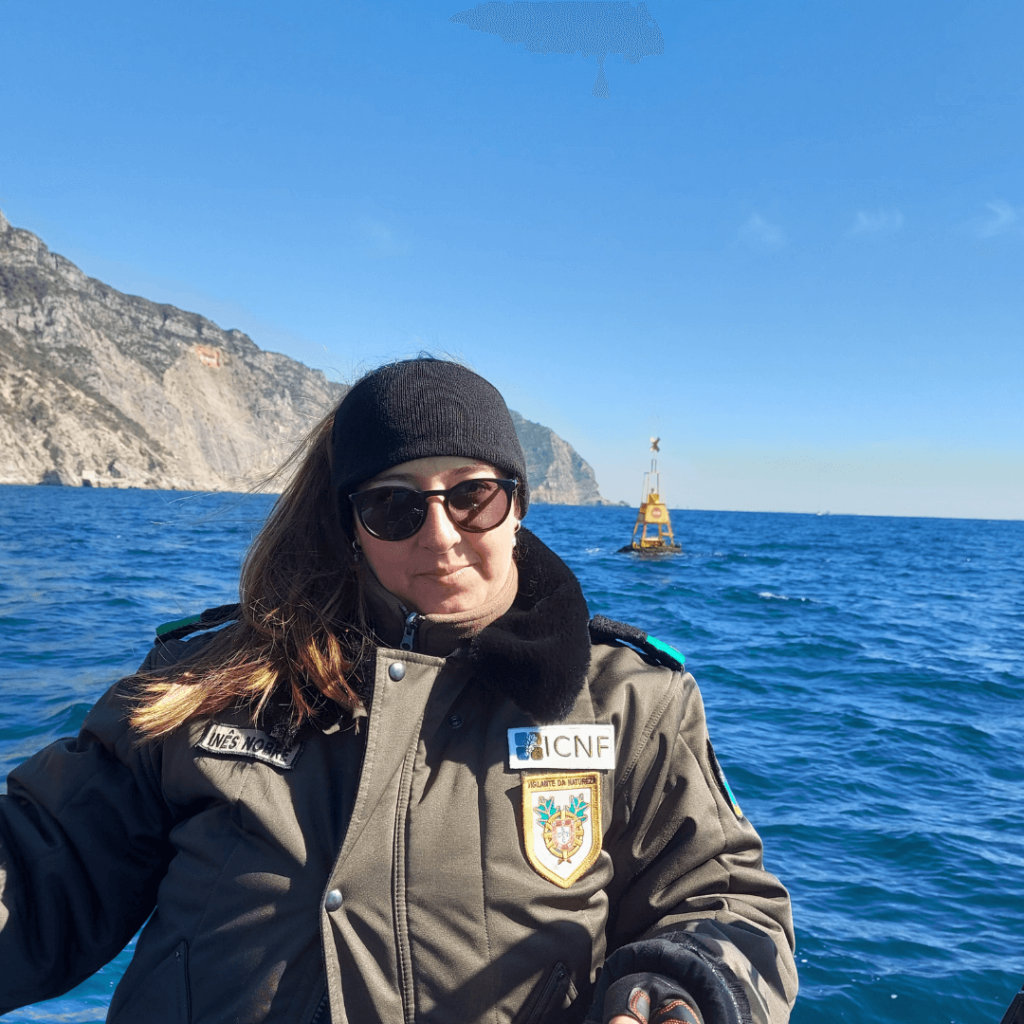
“Drones are relevant for all our different fields of work and regional areas.”
Inês Filipa Avó Nobre, ranger from Portugal
What did you learn in drone training and what experience did you have with drones before that?
I learned to fly them and, also very important, to process the data collected during the flight, as well as to plan flights. There could have been more practical drone training in the field. Now I have to practice a lot (laughs). Before the training we did research on dolphins in our team by steering drones from our boat twice, the same ones we learned with now in Spain. But I haven’t had any real experience with drones yet.
“My drone now has more functionality and uses because of the course.”
Adam J. Norton Turner, participant and ranger from Sweden
How exactly will you integrate drones into your daily ranger routine?
First of all, I am waiting for my ranger service to buy drones. I have the information from the course about why drones are very important for me and my fellow rangers in Portugal. Now I have to convince my boss. Drones are relevant for all our different fields of work and regional areas. This is what I learned from my colleagues who were with me at the training in Seville. One example is the use in fighting wildfires, where drones help a lot to protect rangers.


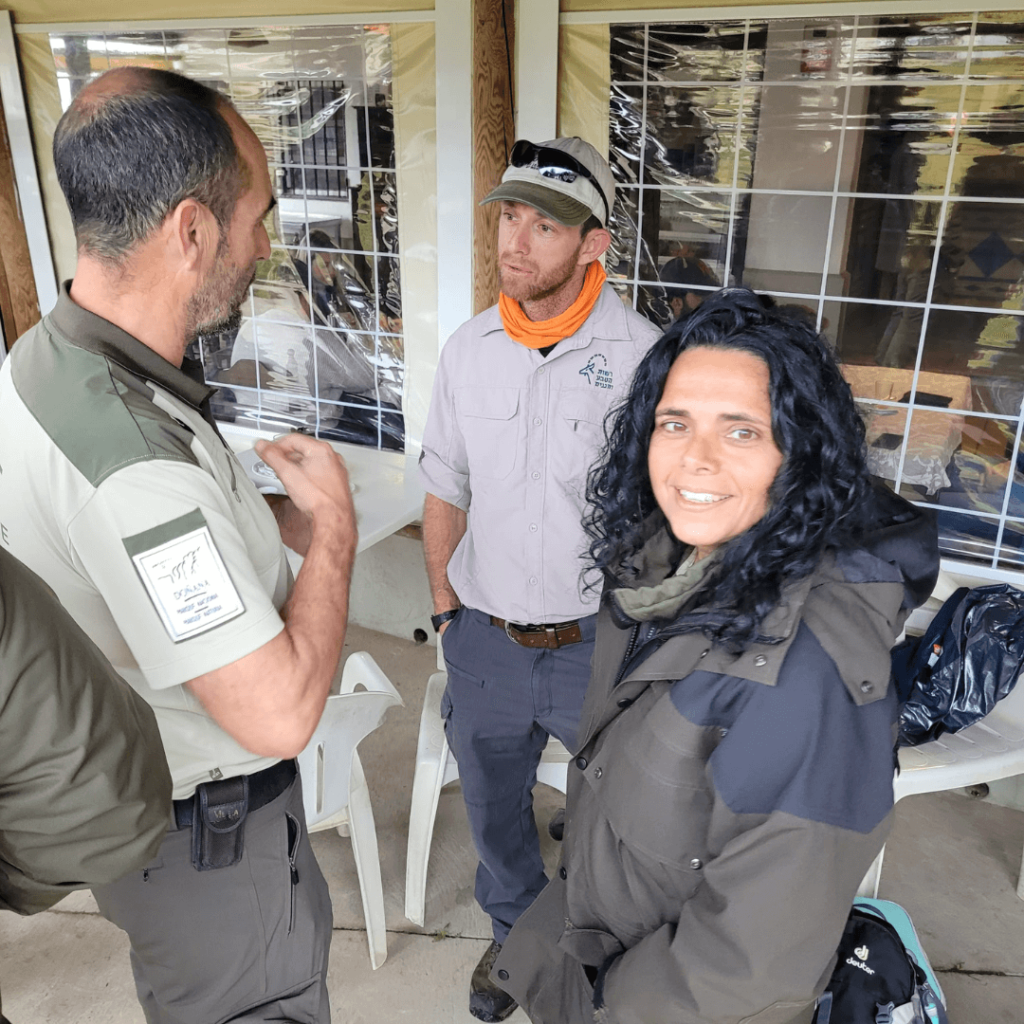
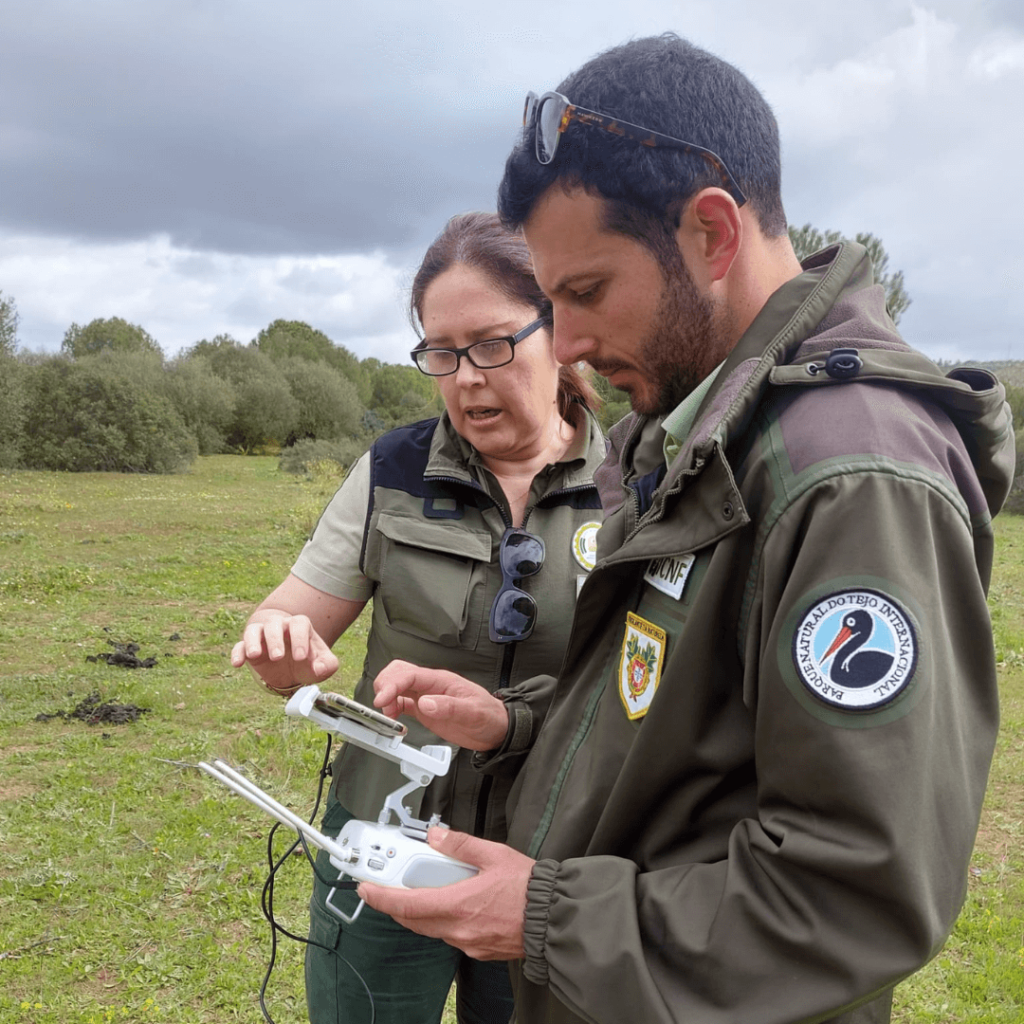
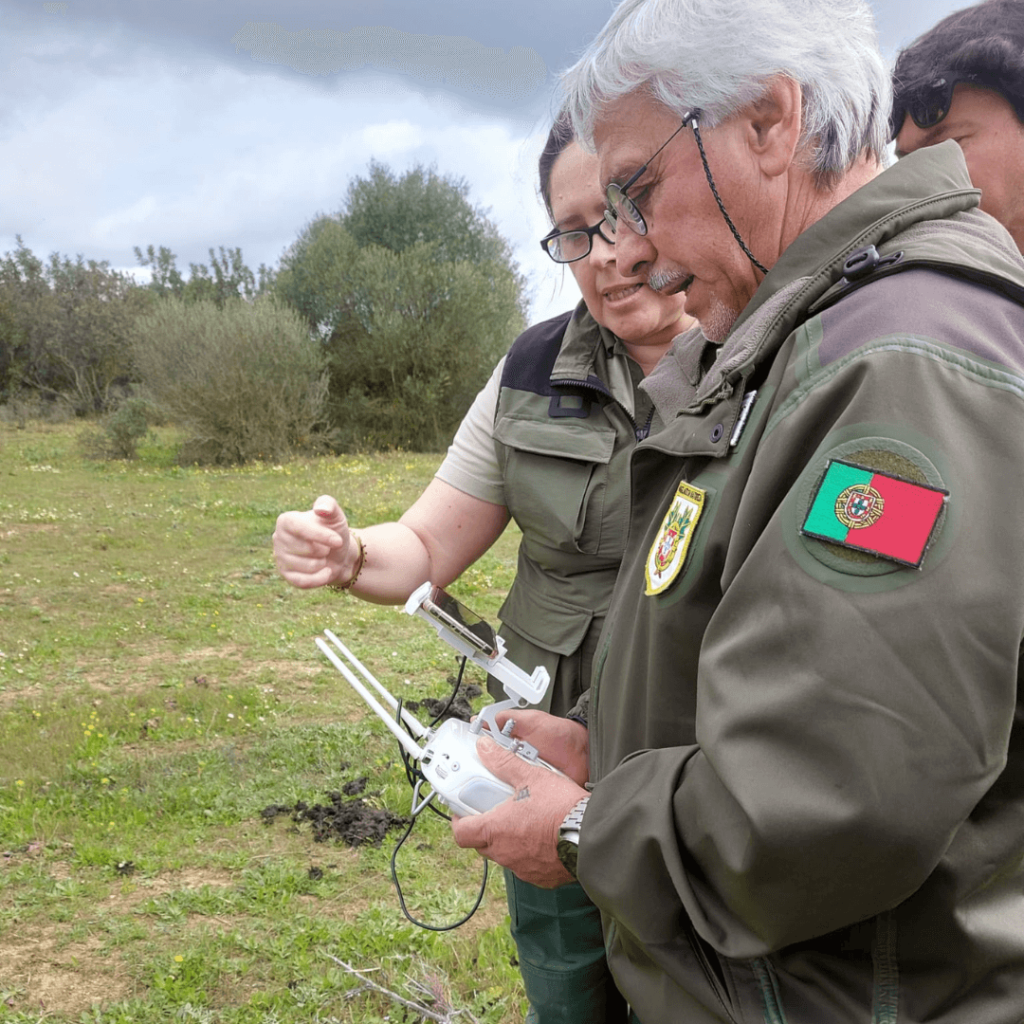

Were you satisfied with the course management and the instructors? And how did you experience the participant community?
Yes very much, they were super careful and considerate. And they really know exactly what they are doing when dealing with drones and how to pass on their knowledge to us. Regarding the training group as a whole it was so nice to get to know colleagues from different areas and cultures. The Israeli rangers, for example, showed us their work and difficulties in a small presentation. And we learned from the Italian rangers Stefania Ghizzo and Nicola Pillonetto that they are volunteering as rangers, but in their actual profession they are, for example, a police officer. We created a very good connection among us all, including the teachers. We still share photos and videos about our daily work.
“I would have liked to have more practice with the software and lessons in the afternoon.”
Nicola Pillonetto, participant and ranger from Volontari d’Europa, Italy
You also made a trip to Donaña National Park. What did you experience there?
It’s very similar to my home protected area with its dunes. We learned about the animal species, wild boar, deer, how important the dunes are and that the park is very important for bird migration. We also had a big get together there with a huge paella and it was great to share my cheese and sweet wine. I would like to thank ERF and everyone involved again very much for this drone training. The use of new technologies like this is very important for the evolution of ranger activities! I would be happy if there are more courses like this!
The Italian media also picked up on the participation of two rangers from the Italian organisation Volontari d’Europa at our drone training:
editorial work for this
content is supported by


